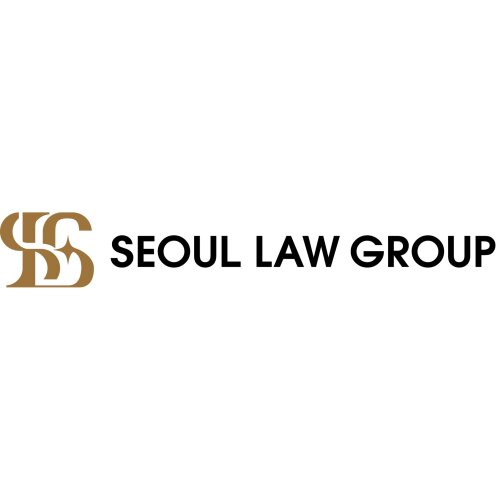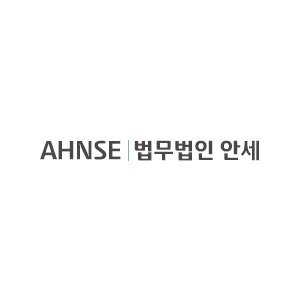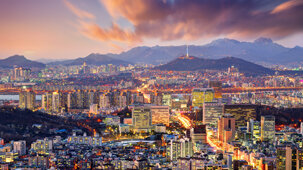Best Water Law Lawyers in Seoul
Share your needs with us, get contacted by law firms.
Free. Takes 2 min.
List of the best lawyers in Seoul, South Korea
About Water Law in Seoul, South Korea
Water Law in Seoul, South Korea, is a specialized area of environmental law that regulates the use, management, protection, and preservation of water resources. It covers areas such as rivers, lakes, groundwater, and public water supply. The legal framework places high importance on ensuring a sustainable water supply, preventing water pollution, and managing conflicts over water use. Both national and local regulations govern water issues, focusing on balancing the needs of citizens, businesses, agriculture, and industry with the need to protect public health and the environment.
Why You May Need a Lawyer
There are several situations in which you might need the help of a lawyer experienced in Water Law. These include disputes over water usage rights, violations of water pollution regulations, issues related to construction near water bodies, and problems obtaining permits for water-related projects. If your business or property is affected by changes in water supply or quality, or if you are accused of violating water-related laws, legal advice is crucial. A lawyer can also assist with compliance, dispute resolution, negotiation with government agencies, and representation in administrative or court proceedings.
Local Laws Overview
In Seoul, Water Law is primarily guided by the national Framework Act on Water Management, the Water Supply and Waterworks Installation Act, and the Water Quality and Aquatic Ecosystem Conservation Act. Local government ordinances may supplement these laws, especially for urban planning and public safety. Key aspects include:
- Permits and licensing for the use and discharge of water
- Strict anti-pollution standards to protect public water sources
- Regulation of construction, land use, and development near rivers and streams
- Wastewater treatment requirements for individuals, companies, and factories
- Emergency measures for drought, flooding, and water contamination events
- Restoration and management of urban streams and waterways in Seoul
Frequently Asked Questions
What is Water Law?
Water Law covers all legal matters relating to the use, management, and protection of water resources including water rights, pollution control, and the development of water infrastructure. It ensures that water is used safely, fairly, and sustainably.
Who regulates water resources in Seoul?
Water resources in Seoul are regulated by both the national government and the Seoul Metropolitan Government. The Ministry of Environment is the main authority, but local agencies enforce regulations and oversee day-to-day management.
Do I need a permit to use water from rivers or streams?
Yes. In most cases, anyone wishing to use water from public sources such as rivers or streams for commercial, agricultural, or large-scale purposes must obtain a permit from local or national authorities.
What are the consequences of violating Water Law regulations?
Violating water laws can result in administrative penalties, fines, mandatory remediation, or even criminal charges, especially for severe pollution or unauthorized use of resources.
Can I build near a river or stream in Seoul?
Construction near water bodies is highly regulated. Permits are required, and there are strict rules to prevent pollution, flooding, and habitat destruction. Unauthorized building can lead to legal action, fines, or demolition orders.
What should I do if my property is damaged by polluted water?
You should report the issue to local authorities and seek legal advice as soon as possible. Legal remedies may include compensation claims, administrative complaints, or mediation.
How are water rights determined?
Water rights are typically determined by statutory law, government policy, and permits. Priority is often given to essential public uses, and private rights are subject to regulation to protect the public interest.
Are there laws related to rainwater harvesting in Seoul?
Yes, Seoul encourages rainwater harvesting as part of its sustainability initiatives, but installations must comply with building and safety codes and may require approval from local authorities.
What legal protections exist for clean drinking water?
There are robust laws and regulations to ensure the quality and safety of public drinking water, including regular inspections, monitoring, and strict water treatment standards overseen by government agencies.
Where can I get help with a water law issue?
You can contact local government offices, the Seoul Metropolitan Government, or seek assistance from lawyers who specialize in environmental and water law matters.
Additional Resources
If you need more information or help regarding Water Law in Seoul, consider reaching out to these resources:
- Seoul Metropolitan Government - Waterworks Headquarters
- Ministry of Environment, Republic of Korea
- Korea Environmental Law Association
- Environmental Dispute Resolution Commission
- Korea Legal Aid Corporation for basic legal support
Next Steps
If you are facing a legal issue or need advice related to Water Law in Seoul, take these steps:
- Gather all relevant facts and documents about your situation
- Research your specific issue using public resources or governmental websites
- Contact a qualified lawyer with experience in Water Law for a consultation
- Consult with local authorities if immediate regulatory guidance is needed
- Consider mediation or dispute resolution services for conflicts involving neighbors, businesses, or government agencies
- Stay informed about your rights and obligations under local and national law
Remember, early legal advice can help you avoid costly mistakes and protect your interests when dealing with complex water-related issues in Seoul.
Lawzana helps you find the best lawyers and law firms in Seoul through a curated and pre-screened list of qualified legal professionals. Our platform offers rankings and detailed profiles of attorneys and law firms, allowing you to compare based on practice areas, including Water Law, experience, and client feedback.
Each profile includes a description of the firm's areas of practice, client reviews, team members and partners, year of establishment, spoken languages, office locations, contact information, social media presence, and any published articles or resources. Most firms on our platform speak English and are experienced in both local and international legal matters.
Get a quote from top-rated law firms in Seoul, South Korea — quickly, securely, and without unnecessary hassle.
Disclaimer:
The information provided on this page is for general informational purposes only and does not constitute legal advice. While we strive to ensure the accuracy and relevance of the content, legal information may change over time, and interpretations of the law can vary. You should always consult with a qualified legal professional for advice specific to your situation.
We disclaim all liability for actions taken or not taken based on the content of this page. If you believe any information is incorrect or outdated, please contact us, and we will review and update it where appropriate.















